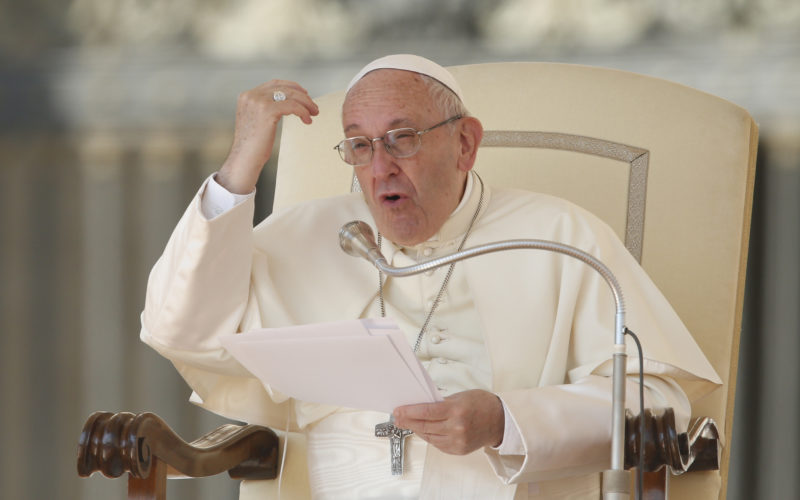Believe it or not, global inequality is falling
It is true inequality has increased in some countries. But globally it is actually decreasing
Oct 25, 2017

By Philip Booth
Twice in the last seven days, Pope Francis has made major statements about the economy. Most recently he referred to systemic and endemic increases in inequalities. This is a continual theme of the Vatican and was reiterated by the former Justice and Peace Commission time after time.
It is common for people to think that inequality is rising. When asked basic questions in a survey about human progress such as reductions in poverty, literacy rates and inequality, 90 per cent of British graduates gave the wrong answers to multiple choice questions. As the late Hans Rosling has noted, if you wrote the possible answers on bananas and left a chimpanzee to choose one, the chimp would do a better job.
This misunderstanding about human progress matters because if we assume things are much worse than they are we will make bad policy choices – and possibly disastrous policy choices for the poor.
As Catholics we should take a global perspective. Global inequality is falling: and it is almost certain to continue falling to 2035. The reason for this is largely down to globalisation. Integration into the world economy, as Pope John Paul II noted in Centesimus annus, has led previously poor countries to grow much more rapidly. Meanwhile the incomes of richer countries have grown less rapidly.
It is true that inequality has increased within some countries. This is to be expected. If a country starts with a high proportion of its population living on the edge of hunger mired in an equality of misery and the country starts to grow, all will not get richer at the same rate. But, even countries such as China have seen inequality level off and then fall for over a decade now.
Inequality is highest in those countries such as in South America and Southern Africa where protectionism is rife and where there is a central role for government in the economy, something which the Pope seems to support. Indeed, the list of countries which are most unequal and the list of countries where the government is most dominant bear a remarkable resemblance. Even in rich countries, whether it is labour market regulation in continental Europe leading to 40 per cent youth unemployment in many countries or restrictions on developing land for housing in the UK, the government often puts substantial barriers in the way of the poor advancing themselves.
Of course, interventions that increase inequality are not the type of policies the Pope would say he wants. However, the Pope often argues that he wants participants in markets to be restrained by regulation. The problem is that the power centres within governments are run by exactly the same kind of imperfectible human persons as those running businesses. As such, intervention can often give rise to effects which are the opposite of those intended. Indeed, policies that favour clean energy, which the Pope called for, may well be good in and of themselves, but an undesired consequence is that they tend to increase inequality as the poor spend a bigger proportion of their income on fuel than the rich.
Given the often perverse outcomes of government intervention in developing economies, at least one cheer must go up for the Pope who finished his talk by saying that civil society must play its role in civilising both the state and the market.--Catholic Herald







Total Comments:0